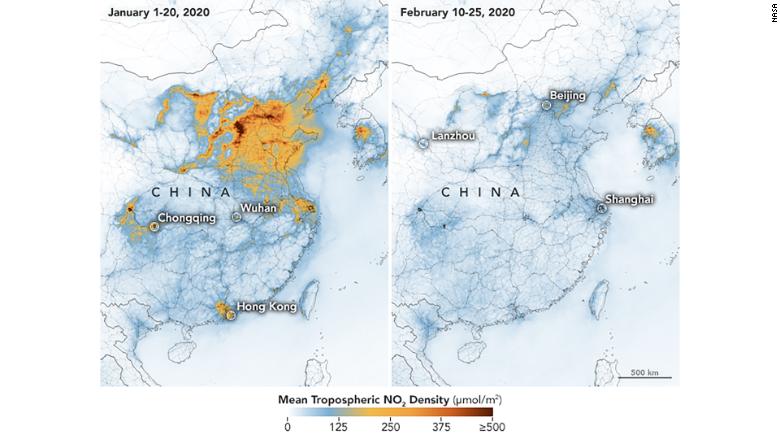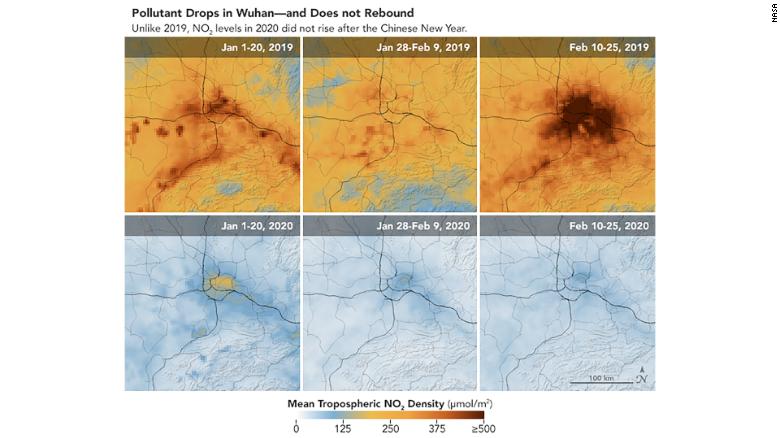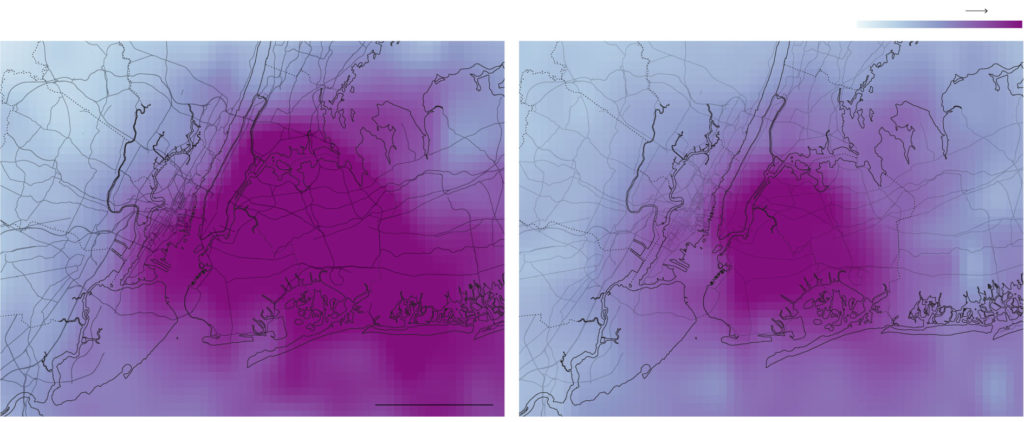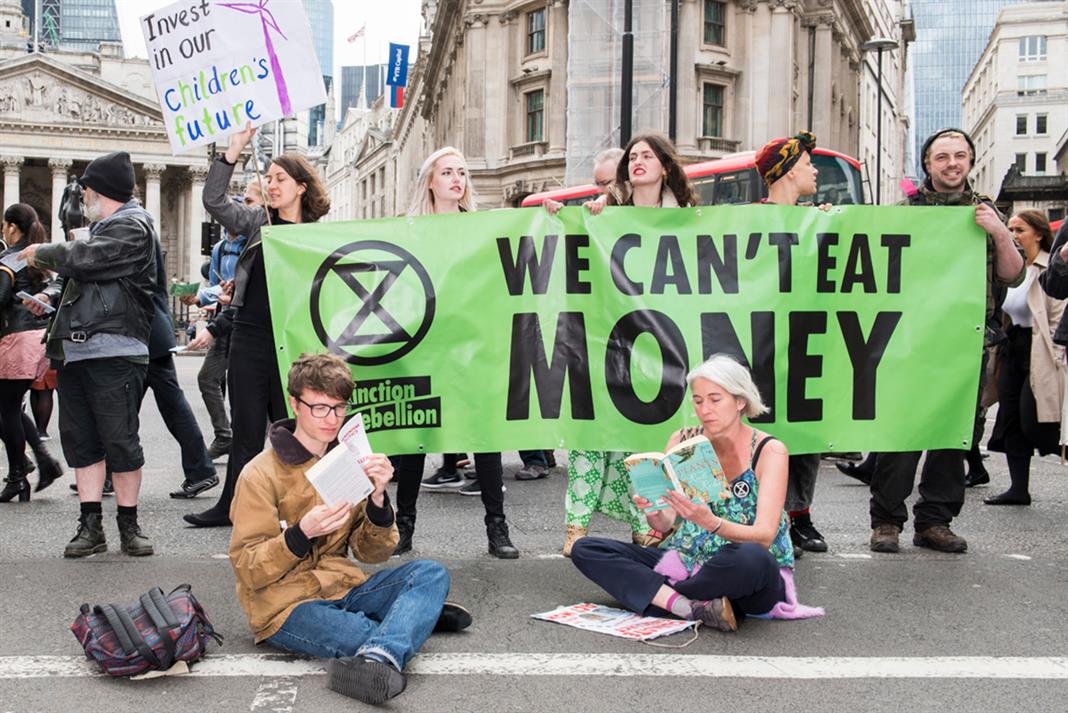
I got into an online argument as I said that the coronavirus was God’s way of letting Extinction Rebellion and climate activists win. Seeing his creation of humanity destroying his creation of everything, it took divine intervention to force us to stop flying, stop manufacturing and stop messing up our planet.
The opposing corner said that I was being flippant and sarcastic, and to stop being so stupid in light of a pandemic that is forcing everyone to stay home and stop doing things.
But it’s the stopping doing things that is making a massive impact.
CNN reports that, in China:
The average number of "good quality air days" increased 21.5% in February, compared to the same period last year, according to China's Ministry of Ecology and Environment.
An analysis carried out for the climate website Carbon Brief suggested there had been a 25% drop in energy use and emissions in China over a two week period. This is likely to lead to an overall fall of about 1% in China's carbon emissions this year, experts believe …
Researchers in New York told the BBC their early results showed carbon monoxide mainly from cars had been reduced by nearly 50% compared with last year … they have also found that there was a 5-10% drop in CO2 over New York.
This is clearly seen in these charts that compare pollution from traffic during the first three weeks of March 2019 with March 2020 in major US cities like New York and Los Angeles:
New York
March 1 to 19 2019 March 1 to 19 2020
Los Angeles
March 1 to 19 2019 March 1 to 19 2020
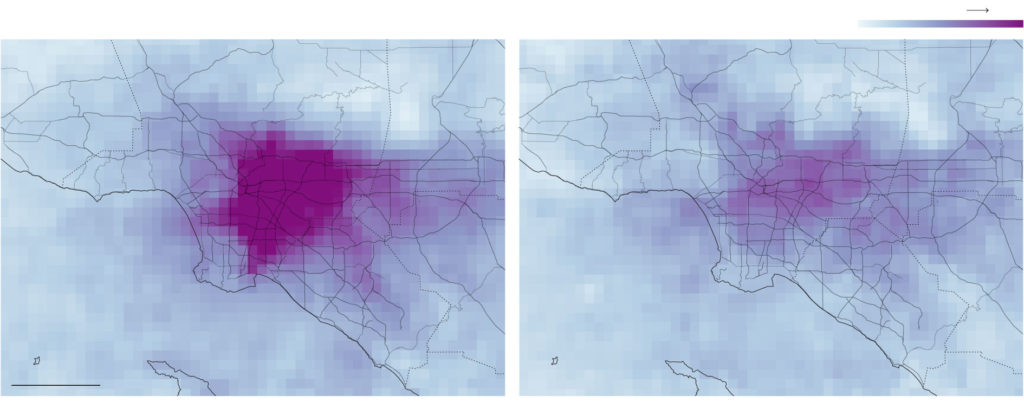 Source: Sentinel-5P satellite data processed by Descartes Labs
Source: Sentinel-5P satellite data processed by Descartes Labs
From Science Alert:
Assuming the carbon efficiency of the global economy improves in line with the 10-year average of 2.5 percent per year, the OECD's post-coronavirus growth projection implies carbon dioxide emissions may decline 0.3 percent in 2020 (including a leap year adjustment) … this drop is comparable to the GFC, which in 2009 led to a 0.1 percent drop in global GDP and a 1.2 percent drop in emissions.
But Fatih Birol, the International Energy Agency’s (IEA) executive director, warns:
“There is nothing to celebrate in a likely decline in emissions driven by economic crisis because in the absence of the right policies and structural measures this decline will not be sustainable.”
This is based upon the view that the coronavirus fall-out will reduce demand for oil in the short-term but, long-term, will stall investments in clean energy projects due to the economic fall-out. The economic contagion will stop governments investing in many currently planned infrastructure projects, including the multi-billion-dollar investments in clean energy needed to avert a climate catastrophe by the end of the decade.
In particular, and a good example, is airline travel. With all flights grounded near enough globally for a two to three month period, carbon emissions will reduce this year. Air travel accounts for between 2 percent and 3 percent of global carbon dioxide emissions, which is about the same as the total emissions from Germany. This year, airline revenue worldwide is projected to fall at least 11 percent … but … the industry is experiencing rapid growth, with emissions expected to triple by 2050 owing to the rapid expansion of travel, low-cost airlines and a booming tourism industry catering to a growing middle class.
All in all, the climate change action must be watching the health contagion dropping into an economic contagion and wondering what lessons can be learnt here? Can this crisis do anything to teach us how to rapidly reduce carbon emissions in the future?
Definitely yes, and Grist articulates this the best. Therefore, here’s a complete section of what they’re saying:
The flu has a death rate of around 0.1 percent in the U.S. COVID-19 has put an estimated death rate between 1 and 3.4 percent, although we won’t know the true death rate until the outbreak is over. The difference between 0.1 percent and 2 percent may not sound like much. Indeed, some people on social media have opined that a 97 or 98 percent survival rate sounds pretty good to them.
But a report published Monday by an epidemic modelling group said that, in the absence of federal and individual measures, COVID-19 could kill 2.2 million people in the U.S. Some of that is because COVID-19 is more contagious than the flu — but it’s also because there’s a major difference between a 0.1 percent death rate and a 2 or 3 percent death rate.
And there’s a major difference between 1.5 degrees C and 2 degrees C. Experts agree that, in order to avert mass casualties, serious upticks in extreme weather events, and unending heatwaves, global warming needs to stay below 1.5 degrees C (2.7 degrees F) over preindustrial levels. We’re currently on track to surpass 2 degrees C (3.6 degrees F) of warming. Some studies show the world is on course for more than 3 degrees C (5.4 degrees F) of warming. So what’s in a half-degree? A whole lot, even if it doesn’t seem like it.
At 1.5 degrees C of warming, heat waves will affect 14 percent of the world’s population once every five years. At 2 degrees C, 37 percent of the world will be exposed to heat waves — 420 million more people. At 2 degrees C of warming, 61 million people more will be exposed to severe drought than if we kept warming to 1.5 degrees C. That half a degree could expose between 180 and 270 million more people to be exposed to water scarcity. At 1.5 degrees C of warming, coral reefs will decline 70 to 90 percent. At 2 degrees C, they become non-existent. These are just a fraction of the findings in the Intergovernmental Panel on Climate Change’s 2019 special report on global warming, but you get the idea. Small changes in climate equal huge impacts.
Maybe if people started thinking about 1.5 degrees C like it’s the flu, and 2 degrees C like it’s a life-altering pandemic, politicians will be compelled to take action. Right now, we’re moving too slowly to avoid a worst-case scenario.
In other words, think of the climate activists as being like a few people who saw the coronavirus coming. Coronavirus hit us hard fast; the climate emergency will hit us hard slow. Let’s bear these things in mind as we self-isolate and binge-watch.
Chris M Skinner
Chris Skinner is best known as an independent commentator on the financial markets through his blog, TheFinanser.com, as author of the bestselling book Digital Bank, and Chair of the European networking forum the Financial Services Club. He has been voted one of the most influential people in banking by The Financial Brand (as well as one of the best blogs), a FinTech Titan (Next Bank), one of the Fintech Leaders you need to follow (City AM, Deluxe and Jax Finance), as well as one of the Top 40 most influential people in financial technology by the Wall Street Journal's Financial News. To learn more click here...


